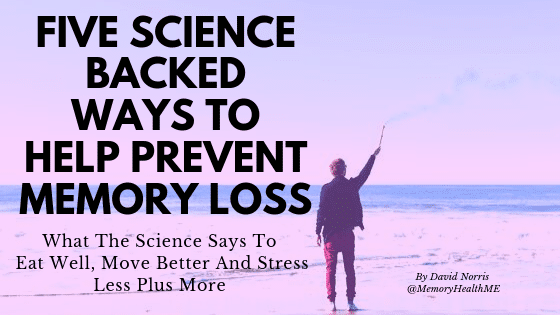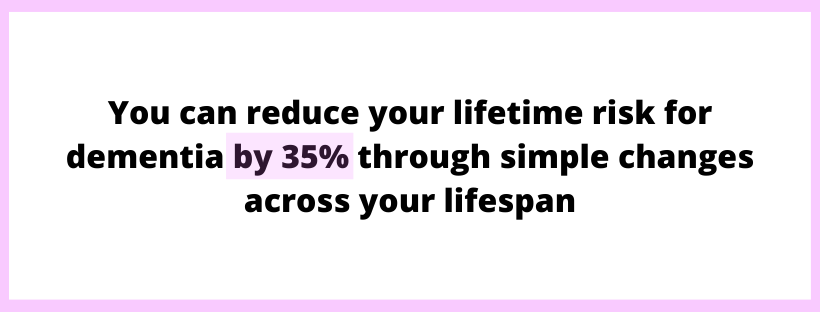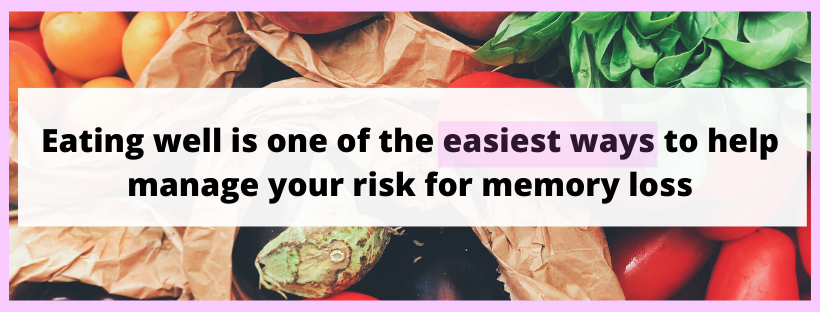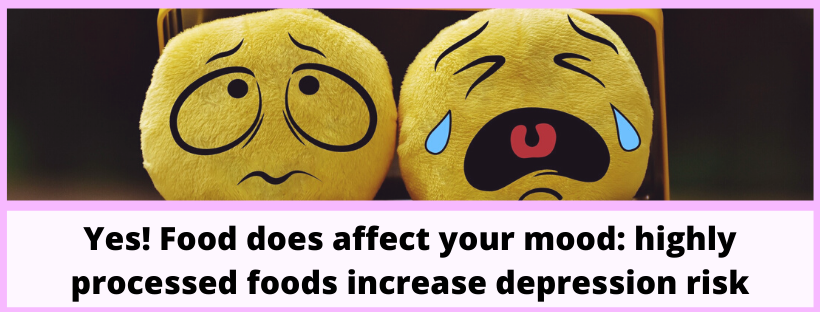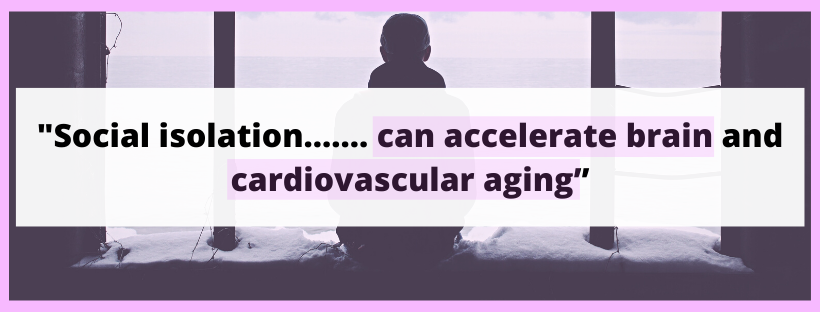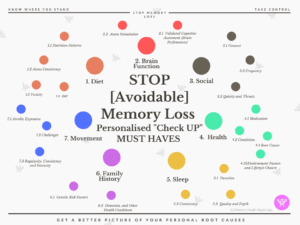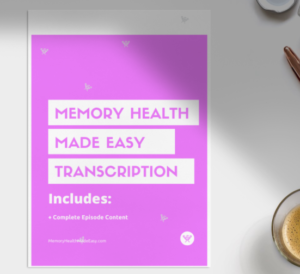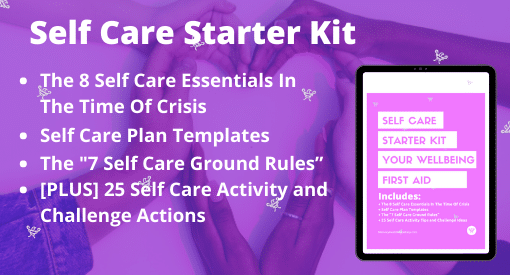Bonus Material: 9 Things Your Brain Needs to Thrive Cheatsheet
Peek Inside The Science Labs and Expert Minds and Learn Five Ways to Help Prevent Memory Loss
If you’re keen to prevent memory loss, you can’t help but notice the explosion of information about quick hacks, magic remedies and special supplements.
The problem is deciding which one to believe, follow or implement?
A quick search of the most shared articles on the web using the term “prevent memory loss” is revealing “Cucumbers and Orange Juice…Just in Men”

No wonder we wander around in circles confused about what to believe.
The problem is we can’t afford to do this.
You see the sad fact one person in every four over the age of 80 will experience dementia (severe memory loss).
BUT it’s not age which is the problem.
Evidence paints a clear picture 9 out of 10 chronic diseases ( dementia severe memory loss being one of them) can be traced back to the lifestyle choices we make today.
It’s my hope from this article you’ll learn what’s good, sound and easy actions to prevent memory loss.
In this article you’ll learn:
- It’s all about your Personal Risks for Memory Loss: What you do today adds up to tomorrow
- Can you prevent memory loss? Are you doing these things?
- What are the Foods To Help Prevent Memory Loss (plus a simple food guide)
- How does exercise play a role in preventing memory loss ( what type is good place to start)
- How to Manage Your Stress levels to help get better clarity
- The surprising impact of your social relationships health and how this matters for your memory.
You’ll get a glimpse into the science, research and strategies to apply in your life from some of the leading labs and experts in the field.
What you see in this article isn’t hype or conjecture nor the latest wellness pop up guru’s observation. Instead there are five science backed ways to help prevent memory loss.
1. It’s All About Your Risks For Memory Loss: What You Do Today Adds Up Tomorrow
A robust 2018 systematic review of 19 studies across 9 countries investigated the evidence for co-occurring lifestyle risk factors and the presentation of dementia.
The research discovered the more risk factors you have the greater your chances for memory loss.
On the flip side, the more preventative factors you take, the more likely you’ll NOT experience memory loss (Peters et al, 2018).
Whilst not rocket science it adds weight to the common sense observation that what you do on a day to day basis adds up over time. Much like a bad debt it can end up dramatically impacting your life.
Many Factors Associated with Memory Loss
“… The development and progression of cognitive impairment is multifactorial, with older age being the greatest risk factor. Research suggests that the processes that eventually leads to cognitive decline and dementia begins many years (even decades) before the onset of symptoms.”
Source Tanaka et al (2018)
Simply said, there are many factors which increase your risk for memory loss, and the processes that lead to this start years before any signs of memory loss symptoms are noticed.

Is Memory Loss Avoidable? (simple actions now)
When I ask an audience “What can you do about memory loss?”
The response appears to be a kind of shoulder shrug.
You know, the deal is kind of done (isn’t it?)
That it’s going to happen and there’s very little you can do to prevent memory loss.
Well this sadly has set many people up to fail.
Fear is very much paramount that’s for sure.
Almost all in the room, maybe like you, have been touched by dementia.
But there is also a fierce determination to do more, learn more.
As the old saying goes, “An ounce of prevention is better than a pound of cure”.
This is particularly true when it comes to memory loss as, once you lose it, you usually can’t get it back so taking action early is the best investment you can make.
A paper published in the Lancet (2017) demonstrated how you can reduce your lifetime risk for dementia by 35% through simple changes across your lifespan. Such as:
- Protect your hearing
- Watch your weight (especially in mind life)
- Education matters
- Safeguard your mental health
- Don’t smoke
The FINGER, ACTIVE and IMPACT studies since have demonstrated compelling evidence for more targeted and lifestyle strategies which had an effect of changing a person’s brain destiny.
Prevention is about lifestyle changes, today.
It’s a smart memory health for life strategy.
2. Foods To Prevent Memory Loss: Adopt A Mediterranean Diet
Eating food aligned to the Mediteranean Diet is linked to a lower risk for memory loss in older adults according to a paper published in the Journal of the American Geriatrics Society.
According to the lead researcher,
- Eating well is one of the easiest ways to help manage your risk for memory loss, with research linking the Mediterranean diet to better memory health.
- The Mediteranean Diet is considered a neuroprotective diet and is associated with better cognitive function in later life (McEvoy et al, 2017).
The Mediterranean diet – which emphasises the benefits of fruits, vegetables, seeds, legumes, and whole grains, as well as seafood, poultry, eggs, and cheese – reflects the eating habits of the people who live close to the Mediterranean Sea.
These communities and cultures have some of the longest life expectancies in the world, which is often attributed to their diet.
While the Mediterranean diet is not designed for weight loss, adopting this way of eating can make it easier to maintain a healthy weight.
This will help further reduce your risk of memory loss, as a high Body Mass Index. (BMI) has been linked to an increased likelihood of developing dementia.
The effect of the Mediterranean Diet was also observed in the large InCHIANTI study of ageing.
The researchers examined the association between a Mediterranean diet and trajectories of cognitive performance over a 19 year period and included 1616 adults aged 21 – 102 years.
At the start of the study data was gathered on an individual’s DNA, including their APOE4 status as well as fasted blood samples.
Across the 19 year study period 5 visits were conducted and measures taken.
Here’s what they found:
The InCHIANTI study was revealing in many ways, most importantly those people who moderately or strongly “adhered to the Mediteranean diet can have long-lasting protective effects on cognitive decline and may be an effective strategy for the prevent or delay dementia.”
Tanaka et al, (2018)
Simple Guide Of What Foods Are In The Mediterranean Diet
- Eat: Rich and Diverse Sources of Whole Foods: Vegetables, fruits, nuts, seeds, legumes, potatoes, whole grains, breads, herbs, spices, fish, seafood and extra virgin olive oil.
- Eat in moderation: Poultry, eggs, cheese and yogurt.
- Eat only rarely and infrequently: Red meat, processed foods, fried and fast foods, snack foods, red meat, poultry and whole-fat dairy foods
What is a whole food?
- Whole food is a term which is used a lot and as such has lost its original intent to describe a process of connecting the farm as close as possible to the consumer. You could say, a whole food is a food which is as close to its natural form as possible.



Are There Unhealthy Foods For The Brain
The MIND diet, a version of the Mediterranean diet, highlights several food groups which are considered unhealthy and associated with increased risk for memory loss: red meat, butter and stick margarine, cheese, pastries, sweets and fried/fast foods.
- Fried and or Fast Foods
- Refined grains: White bread and pasta made with refined wheat
- Sweets and Foods with Added Sugar: Soft drinks/Soda, lollies/candy, ice-cream, and many others.
- Trans fats: These are fats found in tub or stick margarine and often used in processed foods to improve taste, texture, and shelf life. They are also found in salad dressings, pie crusts, muffins, chips, baked goods and more. A study observed an association linking Trans fats with worse memory function in men in their prime earning years (Golomb, 2015)
- Refined oils: Soybean oil, canola oil, cottonseed oil and others.
- Processed meat: Processed sausages, hot dogs, bacon for example
- Highly processed foods: Anything labeled “low-fat” or “diet” or which looks like it was made in a factory so in a sense it has been denatured or removed far away from its original whole food form.
****Quick Tip: Read The Product Labelling for the hidden ingredients as mentioned above. Ideally you also want foods which are preservative, additive, emulsifier and artificial sweetener free.*****
How is the Med Diet Helping You Prevent Memory Loss?
It needs to be said that there is still a lot of unknowns about the mechanistic causes of why the Mediteranean style diets have this effect of lowering your risk for memory loss.
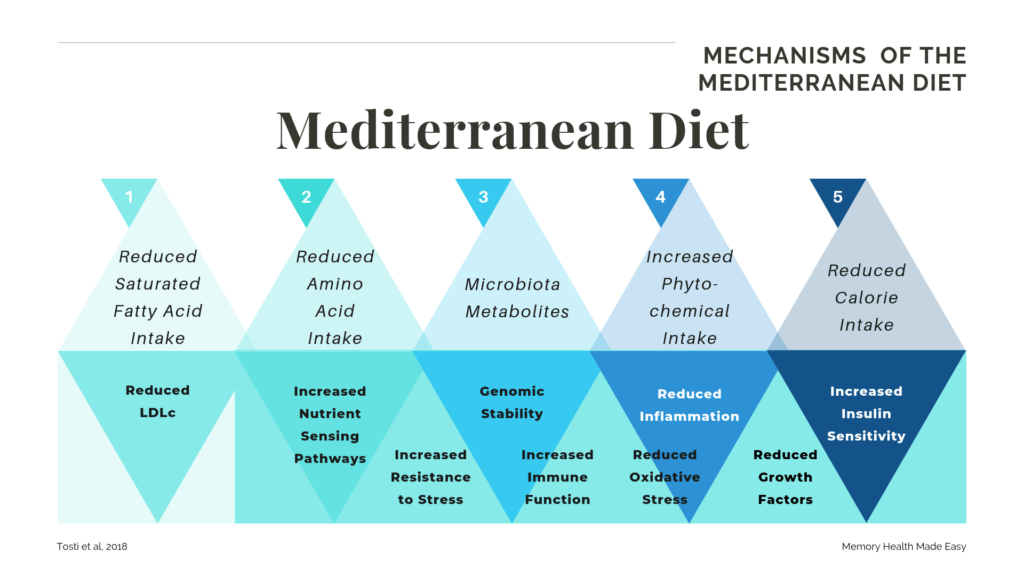
That said, there’s amassing evidence which points to five important changes brought on by the Mediterranean dietary pattern. These include
- lipid-lowering effect,
- protection against oxidative stress, inflammation and platelet aggregation,
- modification of hormones and growth factors involved in cancer,
- inhibition of nutrient sensing pathways by specific amino acid restriction, and
- gut microbiota-mediated production of metabolites influencing metabolic health
Tosti et al, (2017).
What You Eat Changes Your Brain
Adding weight to the observation of Tosti and her colleagues, Professor Felice Jack and her team completed the SMILES study which revealed the effect of dietary improvement as a treatment strategy for depression.
The study appeared to have two success ingredients
- Diet: Study participants adopted a Modified Mediterranean Diet
- Support: Had dietetic nutritional advice, coaching and clinical support throughout the 12 week program.
Prof. Jacka has been instrumental in establishing the field of Nutritional Psychiatry and in her book, Brain Changer, provides a current view of the science.
Prof. Jacka draws together an insightful observation of data and personal stories and reports:
- Food does affect mood: highly processed foods increase depression risk, while a balanced, whole-food diet can prevent depression and improve mood.
- A healthy diet improves gut health, and in turn health microbiota (gut bacteria) promote brain health and keep our weight in check.
- A healthy diet improves brain performance at all ages, from school-age kids to their work-stressed parents.
- Further supports for the Mediterranean diet is linked to lower rates of Alzheimer’s disease and general cognitive decline in older people.
Other nutrition strategies for prevention of memory loss have emerged especially:
- MIND diet lead by Morris and colleagues of Rush University which took elements of the Mediterranean Diet and the DASH diet ( cardiac health diet)
- Dr Valter Longo: Longevity Diet (Pescatarian) and Time Restricted Feeding and the Fasting Mimicking Diet. Details can be found in his solidly researched book, The Longevity Diet.
- Dr Dean Ornish: Wholefoods, vegetarian and captured recently in his book Undo.
It’s clear, food is one of the pillars for memory health for life. It’s also wrapped in hype, hope and misinformation which leads to confusion.
Following the evidence trail will help you move in a positive direction, with more clarity and with the payoff of reducing your risk for memory loss.
But, there are other factors needed to be in play to ultimately prevent avoidable memory loss.
3. Exercise Regularly
Does exercise play a role in preventing memory loss?
In addition to the obvious physical benefits, exercise has been shown to help protect against memory loss.
But how and what type of exercise?
A simple question but scratch beneath the surface it’s more complex than you’d expect and one which has vexed the research community.
Data analysis has found that regular aerobic exercise can prevent the deterioration of the hippocampus.
As this is the area of the brain that’s involved in processing memories, this study suggests that working activities that raise your heart and breathing rates (like walking, swimming, and cycling) into your daily routine could help stop memory loss.
Recent research has also found a link between leg exercise and the production of new nerve cells.
The findings of this study suggest that using our legs, particularly for weight-bearing exercises, is critical for maintaining a healthy brain and nervous system.
How Much Exercise Do You Need To Prevent Memory Loss?
The Standard Physical Activity Recommendations for adults aged 18–64 years, according to the World Health Organization are:
- Aerobic physical activity throughout the week or do at least 75 minutes of vigorous-intensity aerobic physical activity throughout the week or an equivalent combination of moderate- and vigorous-intensity activity.
Aerobic activity should be performed in bouts of at least 10 minutes duration. - For additional health benefits, adults should increase their moderate-intensity aerobic physical activity to 300 minutes per week, or engage in 150 minutes of vigorous-intensity aerobic physical activity per week, or an equivalent combination of moderate- and vigorous-intensity activity.
- Muscle-strengthening activities should be done involving major muscle groups on 2 or more days a week.
To date, public health authorities have not issued physical exercise guidelines specifically for promoting brain health.
In 2016, The Global Council for Brain Health provided more direction regarding exercise recommendations:
- Physical activity has a positive impact on brain health and comprises both an active lifestyle and purposeful exercise
- A physically active lifestyle (e.g. walking, using the stairs, gardening, etc.) provides benefits for brain health.
- Purposeful exercise (e.g. brisk walking, cycling, strength training, group exercise classes, etc.) provides benefits for brain health.
- The GCBH recommends that people do both to maintain and improve brain health.
More Recent Research on Exercise To Help Prevent Memory Loss
A Japanese research team documented that it’s not so much about type more so about just moving and doing it frequently, which had a direct effect on memory performance.
In this study it was reported that brief, very light exercise rapidly enhances hippocampal memory function (Suwabea et al, 2018).
A meta-analysis of other gold standard research (Randomised Controlled Trials) reported that aerobic exercise training is associated with modest improvements in attention and processing speed, executive function, and memory (Smith et al, 2010).
A memory health clue from another meta-analysis suggests long term exercise exposure can significantly improve working memory when compared to short term physical exposure (Rathore & Lom, 2017).
So the longer you’ve supported the habit of exercise across your life, the better for your memory.
More recent published work in 2018 by Dr Brendon Stubbs and Dr Simon Rosenbaum provides health professionals specifically practical strategies to use exercise as a treatment component for mental illness.
Titled “Exercise-Based Interventions for People with Mental Illness: A Clinical Guide to Physical Activity as Part of Treatment” offers up a growing field of knowledge around the role and the application of exercise for mental health and arguably cognitive performance.
In short exercise has a positive role with your brain health and there is a growing and compelling evidence base to suggest that exercise is neuroprotective.
To borrow from @JimKwik of Kwik Brains: “As your body moves, your brain grooves”
4. Reduce Stress
While this may sound a little abstract – and unachievable – actively managing your stress levels can have a significant impact on your memory health.
Stress is a normal part of life, and our bodies are fairly well designed to handle acute (or short-term) stress.
However, if this stress becomes chronic (or long-term), the hormones released as part of the body’s normal reaction to stress – like glucocorticoids (e.g. cortisol) – can build up and have a negative impact on your brain performance, for example, can impact the ability to form and recall memories.
Breath Work and Stress:
From formalised mindfulness programs like Mindful Based Stress Reduction technique to yoga and box breathing. Following your breath, using deep diaphragmatic breaths, has been shown to help you move from a fight and flight state into a relaxation state.
There are numerous tools, classes and programs to help you develop the skills.
Box breathing, popularised by Mark Divine is perhaps the most simple and straightforward process when starting out. It reflects a common clinical approach known as the “365 method”: It follows
- 3: at least three times a day,
- 6: breathe at a rhythm of six cycles per minute (five seconds inhaling, five seconds exhaling) for
- 5: five minutes.
And do it every day, 3-6-5 days a year.
Some studies infer that there is greater long term resilience.
So not only is there an immediate benefit but regular breathing exercises can help people be less vulnerable to stress, by permanently modifying how the brain networks are firing.
Deep diaphragmatic rhythmic breathing has been observed to help you calm your thoughts, slow your heart rate, and regulate your autonomic nervous system.
Besides, it’s the most portable tool you have at your disposal.
Exercise and Stress
Increasing your heart rate, placing your body under subtle stress ( sounds counter intuitive doesn’t it) is another way to combat stress.
From weights to aqua aerobics to walking the urban paths solo or with a partner, a regular habit of exercise has been shown to have a positive impact on reducing your stress.
Sleep and Stress
It’s clear there is substantial evidence supporting brain health and sleep. On far too many occasions we are running our energy wells dry and pushing ourselves to our physical and mental edge and it’s common that your sleep hygiene can fall to the wayside.
Safeguarding your sleep and applying the early mentioned strategies can have a payoff in managing your stress.
It goes without saying that getting professional support can also be a much needed breakthrough for people who are struggling with stress.
5. Socialise Regularly
Loneliness is contagious, heritable and affects one in four people according to Dr John Cacioppo, a social neuroscientist reported The Guardian in 2016.
“ Social isolation can have direct effects on cardiovascular disease risk factors. Perceived isolation and loneliness are associated with increased sympathetic nervous system activity, increased inflammation, and decreased sleep, all of which can accelerate brain and cardiovascular aging”
Cacioppo, et al., 2011
While most people focus on the importance of staying physically and mentally active, being socially active can also help prevent memory loss.
A study led by researchers at the University College London, found that
- 60-year-olds who saw friends almost daily were 12% less likely to develop dementia than those who only saw a couple of friends every few months.
Similar results were also seen for those who have regular social contact at ages 50 and 70.
Social activity is also strongly connected with increased levels of physical activity and mental stimulation, which can also help prevent memory loss.
After surviving a near fatal car accident, Dr John Cacioppo was noted to say “ that love and social connections are what really matters in life”.
His research certainly went to the heart of this matter.
Adding compelling evidence to the Social – Memory link a research team in 2018 completed a 10 year longitudinal study of over 12000 Americans.
They found:
- loneliness as measured at the beginning of the study was linked with a 40% increased risk for developing dementia (Sutin et al, 2018).
Making Changes Can Be Hard – It’s Easier Together
Life throws us curve balls, your health could be the big issue and added to the mix you’ve now made a commitment to make changes in your life to prevent memory loss.
Yet, sometimes it’s tough and a real grind.
It can be predicted or happen out of the blue.
When you miss your daily or weekly goals you can feel, like many of us, a strong desire to throw in the towel.
Shame, guilt and in some way comfort emerges about regressing a little into old habits.
Feeling failure when we are trying sooo hard to do it differently can tarnish our new sense of self.
Turning towards these negative feelings is part of the journey.
Staying the course, turning up for yourself, even a small amount of progress keeps you moving in the right direct.
Knowing that others have been here before or are in the same place as you can be of immense help as there is solidarity in sharing and connecting with others.
Fear is a powerful motivator but a poor sustainer. Joy, happiness, meaning and support helps make change stick and true transformation to unfold.
The right team, group or support can often be the success ingredient people need.
Having some you can ask questions or clarify points, supporting your steps in the right direction, being there to help in the hard times, holding you to account and celebrating goals and victories.
A memory health coach and or working in a group has been shown to be a powerful tool to help people achieve long lasting success with lifestyle change: from diabetes to heart disease, preventing memory loss is no different.
It’s clear that we can be much better together and “Social connections certainly matters for your grey matter”
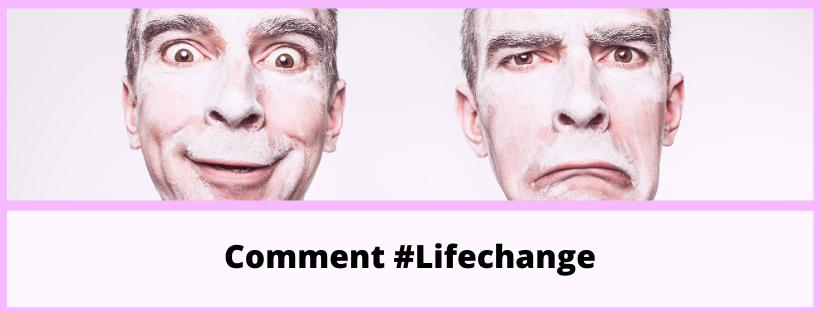
I’ve sorted this post into a short sharp checklist and master points + 4 more areas so you can pick and choose the ones that really connect with you – right now
Then, before you go:
Leave a comment with your favorite brain fit tip that you got from this article.
You’ll be surprised what can happen with the small tweaks in your life #lifechange
References
Peters R, Booth A, Rockwood K, et al Combining modifiable risk factors and risk of dementia: a systematic review and meta-analysis BMJ Open 2019;9:e022846. doi: 10.1136/bmjopen-2018-022846
Claire T. McEvoy, Heidi Guyer, Kenneth M. Langa, Kristine Yaffe. Neuroprotective Diets Are Associated with Better Cognitive Function: The Health and Retirement Study. Journal of the American Geriatrics Society, 2017; DOI: 10.1111/jgs.14922
Tanaka, T., Talegawkar, S. A., Jin, Y., Colpo, M., Ferrucci, L., & Bandinelli, S. (2018). Adherence to a Mediterranean Diet Protects from Cognitive Decline in the Invecchiare in Chianti Study of Aging. Nutrients, 10(12), 2007. doi:10.3390/nu10122007
Golomb, B. A., & Bui, A. K. (2015). A Fat to Forget: Trans Fat Consumption and Memory. PloS one, 10(6), e0128129. doi:10.1371/journal.pone.0128129
Valeria Tosti, Beatrice Bertozzi, Luigi Fontana, Health Benefits of the Mediterranean Diet: Metabolic and Molecular Mechanisms, The Journals of Gerontology: Series A, Volume 73, Issue 3, March 2018, Pages 318–326, https://doi.org/10.1093/gerona/glx227
Global Council on Brain Health (2016). “The Brain-Body Connection: GCBH Recommendations on Physical Activity and Brain Health.” Available at www.GlobalCouncilOnBrainHealth.org
Kazuya Suwabe, Kyeongho Byun, Kazuki Hyodo, Zachariah M. Reagh, Jared M. Roberts, Akira Matsushita, Kousaku Saotome, Genta Ochi, Takemune Fukuie, Kenji Suzuki, Yoshiyuki Sankai, Michael A. Yassa, Hideaki Soya., (2018). Rapid stimulation of human dentate gyrus function with acute mild exercise. Proceedings of the National Academy of Sciences Oct 2018, 115 (41) 10487-10492; DOI: 10.1073/pnas.1805668115
Smith, P. J., Blumenthal, J. A., Hoffman, B. M., Cooper, H., Strauman, T. A., Welsh-Bohmer, K., … Sherwood, A. (2010). Aerobic exercise and neurocognitive performance: a meta-analytic review of randomized controlled trials. Psychosomatic medicine, 72(3), 239–252. doi:10.1097/PSY.0b013e3181d14633
SMILES
Brain Changer by Prof. Felice Jacka https://www.amazon.com/Brain-Changer-Good-Mental-Health-ebook/dp/B07K9LZPNL
Exercise-Based Interventions for People with Mental Illness: A Clinical Guide to Physical Activity as Part of Treatment by Dr Brendon Stubbs and Dr Simon Rosenbaum
https://www.amazon.com/Exercise-Based-Interventions-Mental-Illness-Treatment/dp/0128126051
Longo, V. D., & Panda, S. (2016). Fasting, Circadian Rhythms, and Time-Restricted Feeding in Healthy Lifespan. Cell metabolism, 23(6), 1048–1059. doi:10.1016/j.cmet.2016.06.001
Passed Copyscape Premium – 18 September 2019
Bredesen D. E. (2014). Reversal of cognitive decline: a novel therapeutic program. Aging, 6(9), 707–717. doi:10.18632/aging.100690
Dale E Bredesen, Kenneth Sharlin, David Jenkins , Miki Okuno , Wes Youngberg , Sharon Hausman Cohen , Anne Stefani , Ronald L Brown , Seth Conger , Craig Tanio , Ann Hathaway , Mikhail Kogan , David Hagedorn, Edwin Amos, Amylee Amos, Nathaniel Bergman, Carol Diamond, Jean Lawrence, Ilene Naomi Rusk, Patricia Henry6 and Mary Braud (2018). Reversal of Cognitive Decline: 100 Patients J Alzheimers Dis Parkinsonism 2018, 8:5 https://www.omicsonline.org/open-access/reversal-of-cognitive-decline-100-patients-2161-0460-1000450.pdf
Angelina R Sutin, Yannick Stephan, Martina Luchetti, Antonio Terracciano, Loneliness and Risk of Dementia, The Journals of Gerontology: Series B, , gby112, https://doi.org/10.1093/geronb/gby112
Sources
Dr Matthew Walker interview at Found My Fitness: https://www.foundmyfitness.com/episodes/matthew-walker
https://www.mindbodygreen.com/articles/6-ways-to-reduce-your-risk-of-dementia-according-to-a-new-report
https://www.mindbodygreen.com/0-27508/5-simple-lifestyle-tweaks-to-optimize-your-brain-health-a-neurologist-explains.html
https://www.mindbodygreen.com/0-17530/9-ways-to-improve-your-brain-health-for-better-memory.html
https://www.mindbodygreen.com/articles/alzheimers-prevention-101
https://www.sciencedaily.com/releases/2017/07/170725154208.htm
https://www.sciencedaily.com/releases/2017/11/171130133812.htm
https://www.sciencedirect.com/science/article/pii/S1053811917309138
https://www.sciencedaily.com/releases/2018/05/180523080214.htm
https://www.sciencedaily.com/releases/2016/04/160414214830.htm
https://www.sciencedaily.com/releases/2016/08/160823125219.htm
https://www.sciencedaily.com/releases/2019/01/190131101103.htm
https://www.health.harvard.edu/staying-healthy/understanding-the-stress-response

